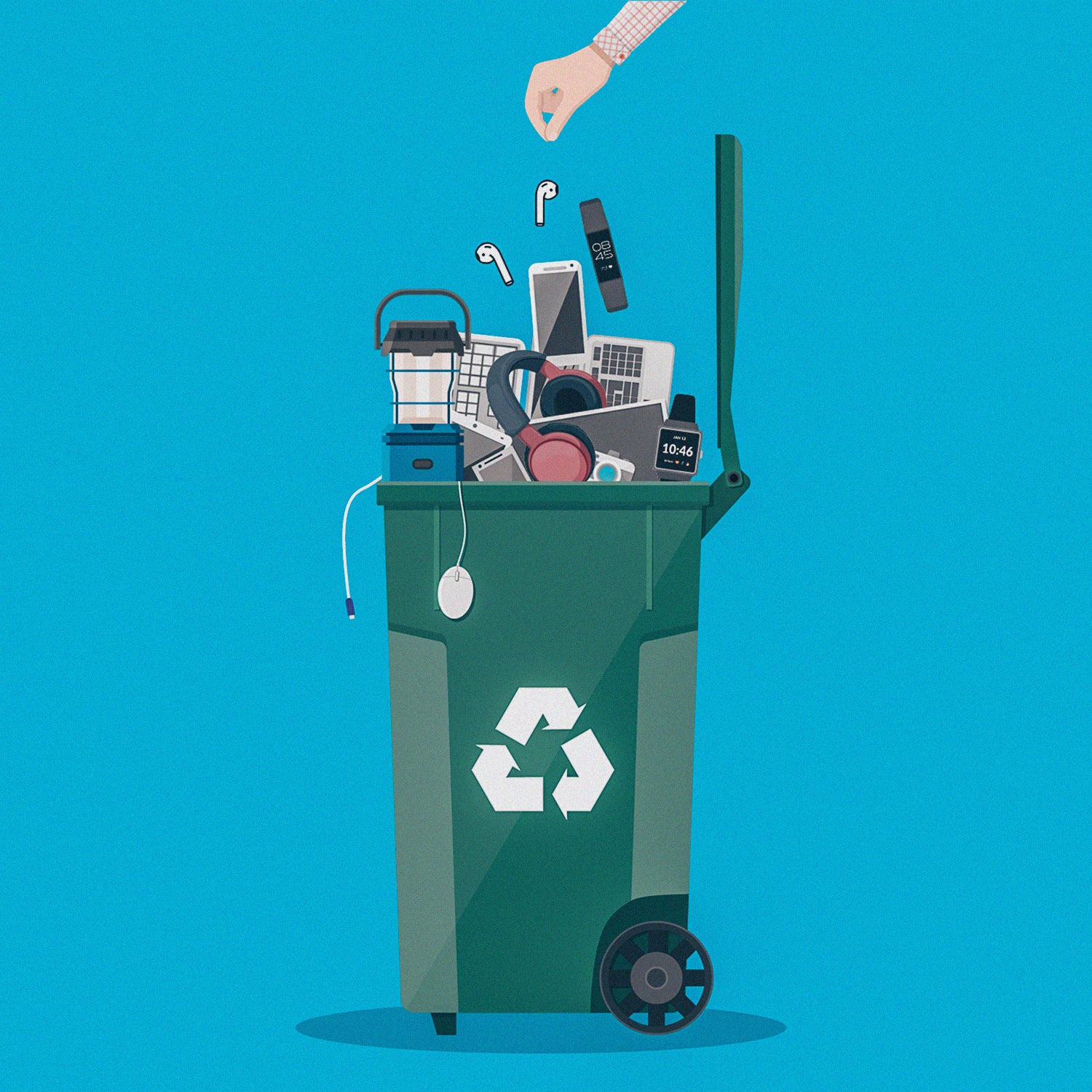R2 Certification: The Mark of Quality in Electronics Recycling
R2 Certification: The Mark of Quality in Electronics Recycling
Blog Article
Elevate Your E-Waste Management With R2 Certification: a Detailed Introduction
One key technique to boost e-waste management methods is by acquiring R2 qualification. By exploring the benefits and procedures associated with R2 certification, a much deeper understanding of exactly how it can revolutionize e-waste monitoring techniques emerges, shedding light on a course towards sustainability and moral disposal methods.
Significance of E-Waste Monitoring

When e-waste is not taken care of properly, these poisonous compounds can permeate into the environment, causing damage to wild animals and potentially getting in the food chain, presenting risks to human health and wellness. The improper disposal of e-waste contributes to contamination and greenhouse gas exhausts, exacerbating climate adjustment and ecological degradation.

Advantages of R2 Certification

Firstly, R2 qualification enhances integrity by showcasing an organization's commitment to lasting methods. It ensures customers, partners, and stakeholders that the firm complies with rigid standards for e-waste administration - r2 certification. This reputation can cause enhanced count on and enhanced connections with clients that focus on environmental duty
Secondly, R2 certification helps reduce threats related to improper e-waste disposal. By following the stringent guidelines stated by the certification, companies can reduce the probability of information violations, environmental contamination, and legal consequences. This positive strategy safeguards the firm's credibility and reduces prospective responsibilities.
Last but not least, R2 certification demonstrates a commitment to environmental stewardship - r2 certification. By responsibly managing electronic waste through accredited processes, organizations contribute to the conservation of resources, reduction of pollution, and promotion of a circular economy. This commitment not only benefits the environment yet additionally straightens with advancing customer assumptions for lasting service methods
R2 Accreditation Process Overview
Having developed the advantages of R2 accreditation in promoting integrity, danger mitigation, and environmental stewardship, it is necessary to now outline the thorough procedure included in acquiring this certification. The R2 certification procedure begins with a comprehensive review of the company's functional policies and treatments to make sure compliance with the R2 standard. This first evaluation is essential in identifying any kind of spaces that need to be attended to before continuing additionally.
Once the company's methods align with the R2 typical demands, an independent third-party auditor conducts an on-site audit to examine the implementation and performance of these methods. This audit consists of a detailed review of documents, interviews with team, and physical evaluations of centers to verify conformity.
Following an effective audit, the organization gets a certification choice based upon the auditor's findings. If accepted, the organization is approved R2 certification, demonstrating its commitment to accountable e-waste monitoring. It is essential to keep in mind that maintaining R2 accreditation calls for ongoing compliance with the criterion's requirements and regular audits to make certain continued adherence to finest techniques in e-waste recycling and disposal.
Key Standards for R2 Compliance
A vital aspect of attaining R2 conformity is making sure that all digital waste (e-waste) processing facilities meet rigid ecological and security standards. To follow R2 demands, organizations should abide by vital requirements that concentrate on liable e-waste management practices. These requirements include carrying out a recorded ecological, wellness, and safety management system, guaranteeing the safe handling of data-containing gadgets, and performing detailed downstream due persistance to track the last location of e-waste products.
In addition, R2 conformity demands the correct screening, repair, and recycling of digital devices to prolong its beneficial life and lessen environmental effect. Facilities seeking R2 certification must also focus on employee health and wellness by supplying needed training, personal protective equipment, and a secure functioning setting. additional reading Furthermore, maintaining get redirected here detailed documents of e-waste handling activities and regularly going through audits by accredited certifying bodies are essential elements of demonstrating ongoing conformity with R2 requirements.
Influences of Sustainable E-Waste Practices
The execution of sustainable e-waste practices in conformity with R2 conformity not only makes certain ecological and safety criteria are satisfied however also dramatically affects the overall lifecycle of digital products. By sticking to R2 standards, digital waste administration procedures end up being more reliable, decreasing the ecological footprint of digital products. Lasting e-waste practices promote the appropriate disposal of digital elements, making certain that harmful materials are taken care of properly and do not wind i was reading this up polluting the setting.
Additionally, embracing sustainable e-waste techniques promotes the round economy by promoting the recovery and reuse of beneficial materials from electronic items. This not only saves priceless resources however additionally reduces the requirement for basic material extraction, lessening the ecological impact of electronic manufacturing. In addition, sustainable e-waste methods can add to work creation in the recycling and refurbishment markets, cultivating economic development while promoting ecological obligation. In general, the fostering of lasting e-waste practices under R2 qualification works as an important step in the direction of accomplishing an extra environmentally lasting electronics industry.
Verdict
In verdict, carrying out correct e-waste administration methods is vital for ecological sustainability and resource conservation. R2 certification plays a key duty in making certain liable handling and disposal of digital waste. By adhering to the stringent criteria stated by R2 criteria, organizations can not only minimize their ecological effect but also add to a much more sustainable future for generations ahead.
One trick technique to raise e-waste management techniques is by obtaining R2 accreditation. By exploring the advantages and procedures linked with R2 accreditation, a deeper understanding of just how it can transform e-waste management strategies emerges, losing light on a path towards sustainability and honest disposal practices.
The R2 qualification process starts with a detailed evaluation of the organization's functional plans and procedures to ensure conformity with the R2 standard. If accepted, the organization is provided R2 accreditation, showing its commitment to liable e-waste management. On the whole, the adoption of lasting e-waste practices under R2 qualification serves as a crucial action in the direction of accomplishing an extra environmentally lasting electronics market.
Report this page